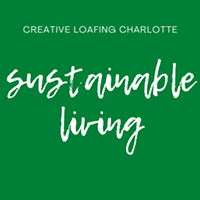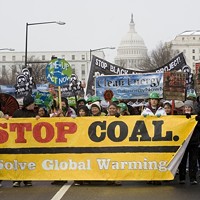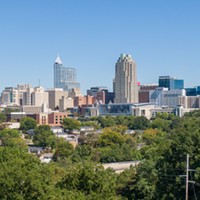Monday, September 13, 2010
News The Gulf's real enemy
Posted By Rhiannon Fionn-Bowman on Mon, Sep 13, 2010 at 1:19 PM
Listen up: We're killing the oceans, and, in turn, the planet. You might read that sentence and the snippet below and think, "Not me. I've never even been to the Gulf of Mexico." Well, I'm here to remind you that everything's connected. Repeat: Every.thing.is.connected. Your and my insatiable hunger for electricity leads directly to massive pollution.
The more electricity we demand, the more energy companies will produce. The more those companies produce, the more polluted our world becomes. It really is that simple.
And, there's no better way for us to gauge the damage than by peering beneath the surface of the water.
Reading BP’s unsatisfying mea culpa listing some of the ways it all went wrong in the Gulf of Mexico, one gets the image of a sticky-fingered school boy standing at the front of the room, hat twisting in his hands, feet shuffling awkwardly as he struggles for words.It’s bound to fuel more outrage over the oil spill. And still, we’re missing the point: As dreadful as it was to see the oil gush out of that hole day after day, that spill will end up doing less damage to ocean life than if the same crude had been pumped and burned as normal.
Instead of fouling the ocean from below, we’re fouling it from above, invisibly. And we’re doing it every day, harming the ocean in ways scientists have only begun to understand in the past decade or so.
It’s called ocean acidification, and it’s caused by carbon dioxide gas released into the air from burning fossil fuels. In the air, the gas traps heat, causing global warming. But a huge chunk of the gas also gets absorbed across the surface of the global ocean.
Scientists used to think that was OK. Great, they said. The ocean will absorb so much carbon dioxide that it will save us from even worse global warming.
Alas, no. It turns out that the carbon dioxide gas reacts with seawater to make carbonic acid. And there’s been so much gas that we’ve made surface water across the whole ocean 30 percent more acidic that it was before we started fueling our economy on crude and coal in the 1800s. It’s more acidic than it’s been in 55 million years, a shift in fundamental chemistry that runs right across the global ocean.
The more carbon dioxide we put into the air, the more acidic the ocean will become.
Read the rest of this Daily Beast article, by Alanna Mitchell, here.
We — you and I — are part of the problem. Want to be part of the solution? As your old light bulbs burn out, replace them with energy efficient bulbs. Better: Turn the lights off and open a window. Unplug electronics you're not using. Look for solar-powered gear. Support renewable energy projects. Consume less of everything (it all requires energy to produce and ship). Remind your friends and family to stop wasting energy, too. Take regular breaks from your electronics and go outside; completely unplugging is very refreshing.
Speaking of...
-

The Moffett Restaurant Group Celebrates the 20th Anniversary of Barrington’s Restaurant
Oct 12, 2020 -

Natures Natural Resources
Oct 11, 2020 -
Cancer's better with a side of 'shrooms
Aug 7, 2020 - More »
Latest in The CLog
More by Rhiannon Fionn-Bowman
-
Cancer's better with a side of 'shrooms
Aug 7, 2020 -

The Last Mountain will move viewers
Aug 4, 2011 -
Government's mixed message for women
Aug 2, 2011 - More »







